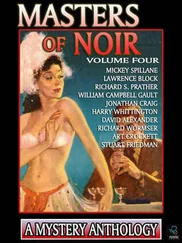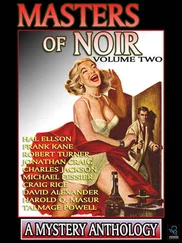Spain, though neutral, supported a very efficient network of German agents. They soon found out about the drowned Marine, got hold of the briefcase and carefully extracted the top-secret letter from its envelope. The British had made the greatest intelligence blunder of the Second World War. With ample time to prepare his defences, Hitler now knew that the Allies were going to invade Europe through Sardinia and the Peloponnesus: the Germans transferred the 1st Panzer Division to Greece and started laying minefields.
It wasn’t until the British got the corpse of Major (Acting) Martin back, a fortnight later, that they knew the Nazis had definitely fallen for the trick. British Intelligence had folded the fake letter to Mountbatten only once before sliding Martin’s dead body into the sea from a submarine off the coast. When the body and effects were returned, investigators spotted under
Excerpt from an interview with Francis and his wife, Amanda
Amanda: When I met the Norton family, I thought they were all so bizarre.
Francis (nodding): My mother was very, very old-fashioned. It was, you know, ‘It’s four o’clock in the afternoon, you can go see your mother.’ We absolutely adored her.
Amanda: They were just so Victorian. I’d never met anything like it in my life.
Francis: My father always said his ideal was to have a tail-coated butler behind every chair.
Amanda: I’ve never known parents who were so unphysical. In the morning Helene, their mother, would go off and do her charity work, then come home and have a long cigarette, put on her kaftan for the afternoon, and sit there doing the crossword puzzle.
Francis: Terribly unfulfilled.
Amanda: I remember once – this is how old-fashioned they were – I’d just had my son Alexander, he was about nine months old, and Dick [Simon and Francis’s father] was standing there, with the table laid with all the silver, and Domingo the butler hovering around. And Dick looks at me and says, ‘Amanda, darling, has Alexander started masticating yet?’
a microscope that the letter had been carefully refolded, creating a second crease.
A month later, Britain and America began their assault 300 miles west of the location indicated in the letter, though Sicily.
S.J. Phillips, Simon’s family firm, provided the £53 engagement-ring bill – it was seen as the touch that the Germans would regard as unfakably, quintessentially English.
Francis is Simon’s saviour. It’s because Francis keeps the family firm alive and profitable that Simon has never had to have a job or a mortgage and, despite using seventeen different variants of bus, train and visitor-attraction discount cards, doesn’t actually need a single one of them.
A mild, self-effacing, apparently undogmatic man (I’ve met him only twice), Francis lives on the other side of Hampstead from brother Michael, and has the talcum-powder-dusted look of the very rich. He is an accomplished cellist.
Every year Francis or Michael invite Simon to their house for Passover; and every year Simon arrives with his shoelaces flapping, his holdall bulging, his bus timetables and his smells, and eats all the parsley.
Now, back to grunts.
The fifth type of grunt emitted by Simon is metaphorical – it’s not a guttural sound, it’s a full sentence. The mathematician Professor John Conway calls it a ‘Thank you, Simon’, defined as ‘a statement that is indubitably true, but the relevance of which is obscure’. For example, in the middle of a discussion with me about whether the Monster might in fact not be a large object at all, but something very small and everywhere, like a flea, Simon will burst out:
‘Incidentally, I was once going on a train and the conductor pronounced that we were now approaching “Manea, the centre of the universe”.’
What can you say after he’s said that? What does he mean? That the flea-Monster, which Simon suspects contains the solution to the symmetry of the universe, is living in Manea, a village in the Cambridgeshire Fens? It can’t be that. Simon is not a lunatic. Maybe it’s just the word, ‘universe’. But he clearly expects some sort of reply. So, after a suitable pause, you murmur, with a slight doff of the head,
‘Thank you, Simon.’
Then you attempt to pick up the pieces of the shattered conversation.
It’s important to realise that this fifth type of grunt never comes about because Simon isn’t able to keep up with the discussion, or because his brain has short-circuited and popped out the non-sequitur in a fizz of misfired neurons. They appear for the opposite reason: he has dashed too far ahead, gone off on a side path, left the ponderous, sequential-talking rest of us behind, raced up into the hills of puns and synonyms and humorous, leapingly interconnected memories … then jumped back with the result, waving his arms and grinning in triumph, like a child ambushing us from behind a tree.
As the fact dawns on Simon that no one has the foggiest idea what he’s talking about, he is not resentful. Politely, he allows the intensity of his grin to slip away. Measuredly, he rejoins the conversation.
(1) Happy, (2) puzzled, (3) incomprehensible, (4) frustrated, (5) phrasal (‘Thank you, Simons’). Sometimes, Simon will go for weeks without offering anything to his biographer but one of these five grunts.
And then, PING!
An email comes.
And behind the grunts, a man.
Monday, February 8th, 9.19pm
I’m sorry, I can’t make head or tail of the last chapter you sent me. I think that any reader who shares my way of thinking will be completely bewildered.
Tuesday, February 9th, 1.17am
I can’t follow the thread of your writing. If I were someone I didn’t know rather than myself, I suspect that in reading it I would have problems following the story even if I could understand the sentences. Incidentally, this is not something I’d say with your previous book. There I could understand your description of Stuart, my problem was you gave me no motivation to understand his character.
Wednesday, February 10th, 12.32am
I’m not sure what you mean [in Chapter 10] by my ‘jocular’ attitude to mathematics, but never mind. You’ve got the calculations wrong – 2 8is 256, not 4096, which is 2 12, and the others are similarly shifted. I don’t understand your bit about numbers floating in the sky. No, I haven’t a clue whether it was a right or left leg that the duck was missing.
[This is followed by fifty-two lines explaining the story of the legless duck, which also includes a self-playing piano, an inferno in the Channel Tunnel, admission that he reads a magazine called Cruising Monthly , and a threat of imprisonment by gas inspectors.]
Wednesday, February 10th, 12.48am
I know what the word ‘jocular’ means. What I don’t know is what you mean when you describe my love of mathematics as jocular, I might be jocular, but how can my love of mathematics be? I don’t know what you mean by a ‘Rabelaisian’ series (and don’t say ‘in the style of Rabelais’!). However, unlike you I do know how to spell the word.
eSimon, the Simon who logs on to his computer at one in the morning, is a different man to Simon the grunter: eloquent, fluent, conversational, reflective, poignant, sometimes funny and – if the subject matter has anything to do with my attempts to understand genius, popularise mathematics or write biography – acerbic.
Simon’s interview with Kevin, resident of Cambourne, in 2016 (An example of Simon’s clear, fluent, amusing writing style. Abridged from an editorial (2006) in his Public Transport Newsletter, which he writes and publishes three or four times a year.)
Читать дальше












